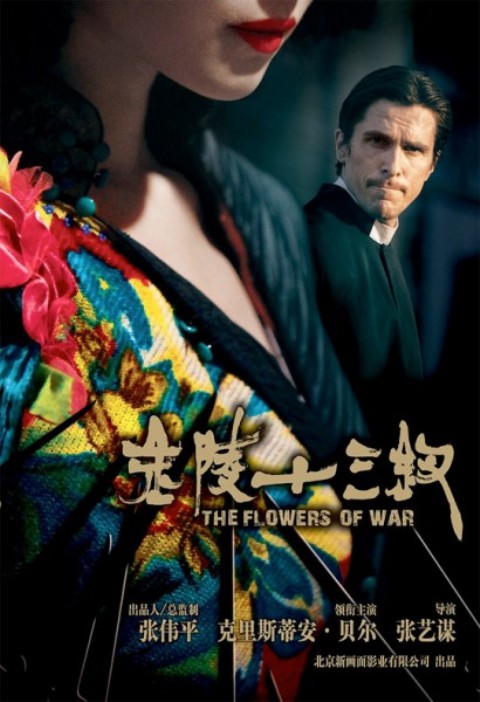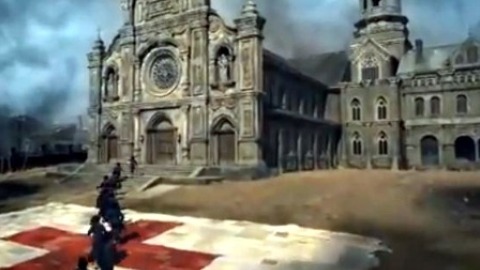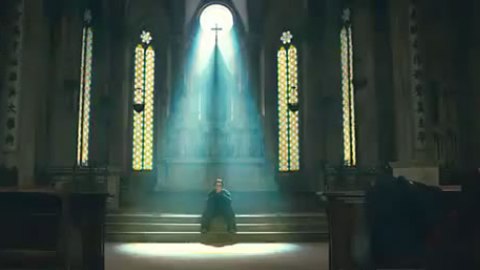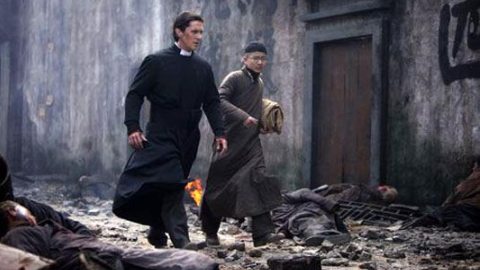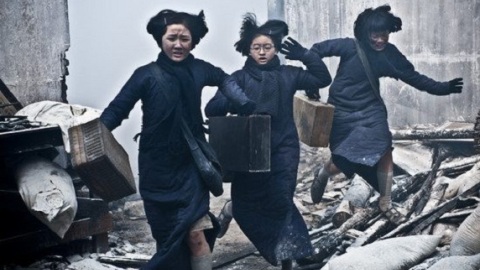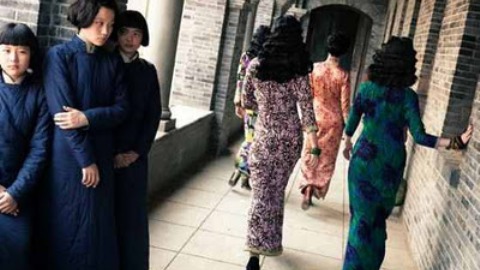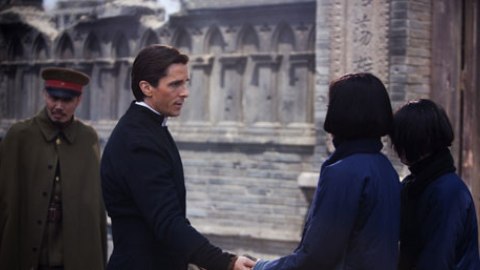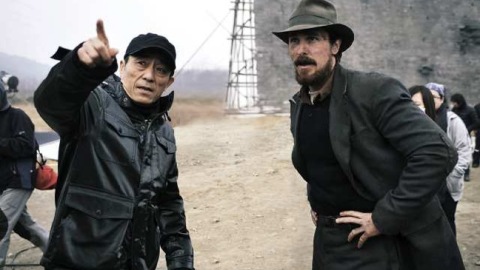After watching the trailer for Zhang Yimou’s new film ‘The Flowers of War’, I can’t help being intrigued by the movie.
Based on the novel ‘The 13 Women of Nanjing’ by writer Yan Geling, the film is set during a period which has become historically known as the Nanking Massacre, also called the Rape of Nanking. In 1937, during the Second Sino-Japanese war, Japanese troops captured the former capital of the People’s Republic of China and subjected its citizens to an unrelenting programme of mass murder, mutilation and rape.
It’s the most expensive film yet produced by China and has already been submitted as the country’s entry for the Best Foreign Language Film at next year’s 84th Academy Awards. It’s not difficult to see why if you watch the trailer below.
About 40% of the film is shot in English, while the rest is Mandarin plus some Japanese. It is about a group of people – women from prominent families, 13 prostitutes, six injured soldiers and several priests – hiding in a church during the Nanjing Massacre in 1937.
Christian Bale plays an American, John Haufman, a salty mortician who apparently has come to town to bury the priest of a Catholic cathedral in Nanking. The cathedral also has a school for girls, and with war waging all around, John dons the dead priest’s robes, unwittingly becoming a saviour/protector to a group of young girls and a collection of the city’s prostitutes.
In 1937, Nanking stands at the forefront of a war between China and Japan. As the invading Japanese Imperial Army overruns China’s capital city, desperate civilians seek refuge behind the nominally protective walls of a western cathedral. Here, John Haufman takes shelter, joined by a group of innocent schoolgirls and thirteen courtesans, equally determined to escape the horrors taking place outside the church walls. Struggling to survive the violence and persecution wrought by the Japanese army, it is an act of heroism which eventually leads the seemingly disparate group to fight back, risking their lives for the sake of everyone.
It has been estimated that nearly 20,000 women and girls were raped and killed by the Japanese troops as the forces invaded China in 1937.
The actresses – especially those who play the prostitutes – remain unknown.
It was reported that several actresses were dropped from the movie after they accidentally revealed their identities through blogging.
Zhang said the secret would be eventually revealed when the film is released on Dec 16 in China. Producers had been hoping for a similar US opening date. But at this point there is no US distributor set up.
Zhang Yimou is a Chinese filmmaker well-renowned for his work on moving period dramas like Red Sorghum, Raise the Red Lantern, and To Live. However, over the past decade, more moviegoers in the U.S. have become familiar with Yimou for his work on acclaimed hyper-realistic martial arts films like Hero, Curse of the Golden Flower and House of Flying Daggers. He also served as the artistic director for the most impressive 2008 Olympics Games Opening Ceremony in Beijing.
The intriguing storyline, picturesque cinematography and excellent production design make Yimou’s latest cinematic creation a film not to be missed
 CY@CY Says Welcome to my dreamscape. Where a Lim is also a Ling.
CY@CY Says Welcome to my dreamscape. Where a Lim is also a Ling.
